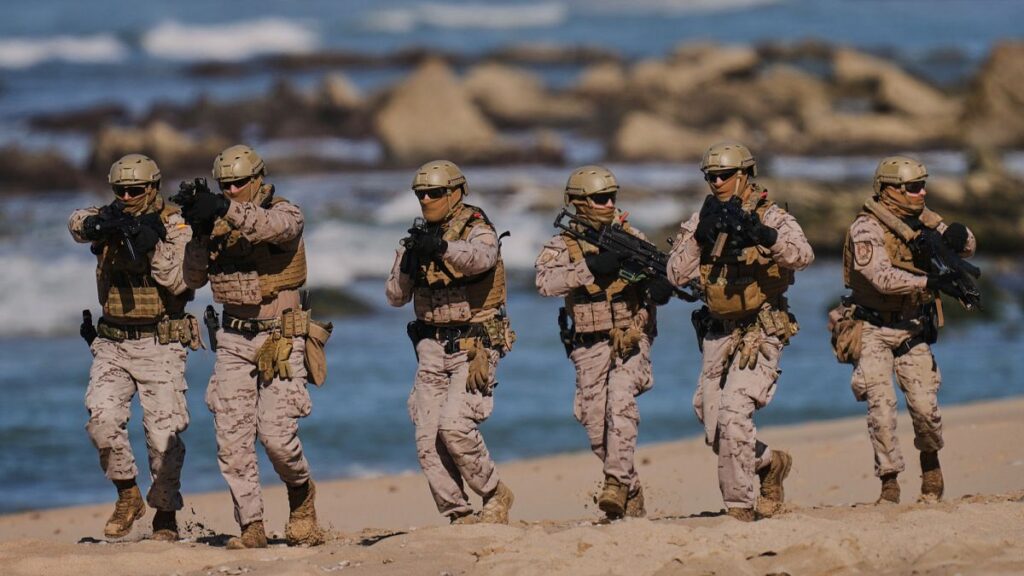The EU’s highest military body is looking into strengthening the bloc’s mutual defence clause with a view of boosting interoperability and military mobility among European armed forces as the US increasingly looks to the Asia-Pacific.
Austrian General Robert Brieger stressed on Thursday following a gathering of the European Union Military Committee, which he chairs, that the EU needs a “clear holistic approach” when it comes to defence and that Chiefs of Defence taking part in the meeting had issued “recommendations for the operationalisation of Article 42.7”.
Article 42.7 is the EU’s mutual defence clause, in force since 2009, which provides that “if an EU country is the victim of armed aggression on its territory, the other EU countries have an obligation to aid and assist it by all means in their power”.
It was triggered once following the terrorist attack in Paris on November 13, 2015, but is generally seen as weaker than the collective defence clause in NATO, which was created some six decades earlier.
That’s in part because it stipulates that “commitments and cooperation in this area shall be consistent with commitments under the North Atlantic Treaty Organisation, which, for those States which are members of it, remains the foundation of their collective defence and the forum for its implementation”.
Some 23 of the EU’s 27 members also belong to NATO.
The reason for the potential revamp, General Brieger told reporters, is “that we found out that the concentration of European Union security and defence posture to international crisis management is not enough for the time being and it’s not fit for the future”.
“So we need to clarify the role of European armed forces within the territorial defence of the continent. There is a clear need for close cooperation with NATO and for sure collective defence will rest in the hands of the Atlantic alliance but we know that the US is shifting their interest to the Indo-Pacific and there is a clear need to do more on European soil and by European member states.”
“And therefore we advise the politicians to think about a more concrete definition of Article 42.7: What is the concrete role? What could be the best delineation with the tasks of NATO?” he added.
Examples he provided included improving military mobility across Europe and boosting the protection of critical infrastructure.
“The advantage of the European Union institutions is for sure that the European Union is capable of acting in all fields of politics, economy, security and military. So we have more tools than NATO and we try to find the best way to complement each other,” he added.
Military mobility was identified as a priority in the White Paper on the Future of European Defence that was released in March by the European Commission and that set out the bloc’s strategy to reduce military dependencies on third countries and boost the deployment of military equipment across member states.
Other priorities include air and missile defence, artillery systems, ammunition and missiles, drones and counter-drone systems, AI, Quantum, cyber and electronic warfare and strategic enablers.
The EU executive, which hopes that up to €800 billion euros could be invested in defence over the next four years in the bloc, is urging member states to pool orders to reduce costs and increase interoperability.
It plans to loan up to €150 billion it will raise on the market to member states who do so, provided they buy European and focus on priority capabilities.
Member states are expected to conclude negotiations on this €150 billion instrument by the end of the month which could mean some of the money starts being disbursed at the very end of the year. Leaders are also expected to approve common European flagship projects at their summit in June.
The gathering in Brussels will immediately follow a meeting of NATO leaders in the Hague where the Alliance is set to announce a new defence spending target.
“Europe is at a crossroads. The threats we face are real, complex, and interconnected,” said General Brieger, who will step down from his role in two weeks.
“Responding to them requires more than declarations. It requires political will, unity, and the means to act. A strong Europe must be a secure Europe. Moreover, a secure Europe must take its defence and its global role seriously.”
Read the full article here

